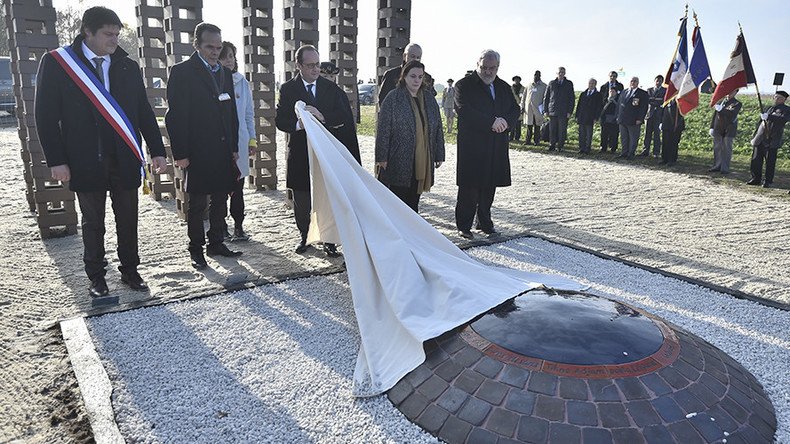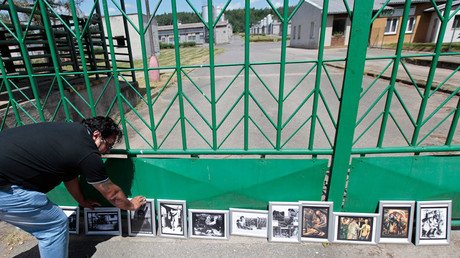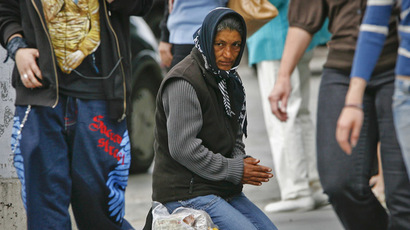Hollande recognizes France's role in Nazi Roma persecution

French President Francois Hollande has acknowledged his country’s role in rounding up thousands of Roma and holding them in concentration camps during the Holocaust.
At a ceremony at the former internment camp in Montreuil-Bellay, Hollande admitted France’s responsibility for the internment of thousands of traveling people under the collaborationist Vichy regime.
“The day has come and it was necessary that this truth be told,” Hollande declared. “The [French] Republic acknowledges the suffering of traveling people who were interned and admits that it bears broad responsibility.”
“The spirit of this moment is to pay tribute to all those men, women and children, Gypsies interned by the Vichy government in 1940 and until 1946, after the Second World War,” he added. “Nearly all families of traveling people have at least one relative who passed through Montreuil-Bellay.”
Montreuil-Bellay was the site of the concentration camp in which over 2,000 Roma were held, as well as a smaller number of homeless from Nantes. A hundred of the detainees died and the former camp was designated as a historic site in 2012.
“It was important to us to have this recognition,” Fernande Delage, head of the France Liberte Voyage NGO, told the L'Express newspaper. “It affects thousands and thousands. It's late but better late than never.”
Around 500 people attended the ceremony, including a number of survivors and their descendants.
“I hope that young people coming into the world will not have to live it, not to see it,” André José Fernandez, a survivor, told L'Express.
“It hurts, it hurts to come back here, especially with our parents,” Deschelotte Henriette, another survivor, said to L'Express.
“I had five little brothers and I am the oldest, then I lost my mother, who escaped. We did what we could, but we were very unhappy.”
Between 6,000 and 6,500 Roma were detained in 31 camps across France during World War Two and even for a short time afterwards until 1946. The Vichy government, which made up most of unoccupied southern France, was essentially a puppet state doing the bidding of Nazi Germany and shipped some of the Roma to German-run camps.
Although the Roma genocide is not as well-known as Jewish suffering during the Holocaust, both were classed as enemies of the German people by the Nazis and endured a systematic policy of extermination, being held in concentration camps such as Auschwitz. While it’s difficult to get an accurate death toll, historians have estimated that between 220,000 to 500,000 Roma may have been killed.














